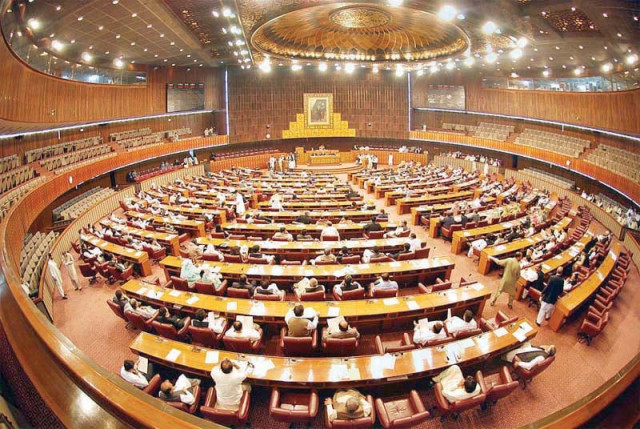Govt moves to revive distressed companies
CRCs law tweaked to let them acquire NPAs easily

The National Assembly has passed key amendments to enable corporate restructuring companies (CRCs) to operate efficiently and acquire non-performing assets (NPAs) from financial institutions easily.
The amendments to the “Corporate Restructuring Companies Act 2016” will also enable CRCs to raise funds for the acquisition of NPAs through segregation risks and rewards and extend financing facilities for carrying out the purposes of the law.
The legislation was approved in National Assembly’s session on June 10, including 20 other laws.
The Corporate Restructuring Companies Act, 2016 was promulgated to facilitate revival of distressed assets and companies.
Under the new law, the Securities and Exchange Commission of Pakistan (SECP) licenses CRCs that engage in business of acquiring and managing NPAs from financial institutions and banks.
The previous institutional arrangements and legal processes for the revival and rehabilitation of distressed entities were time consuming and inadequate.
The amendments have been introduced in line with the government’s vision of reviving the distressed economic assets of the country and they will also enable the CRCs to reach a compromise with the distressed entities expeditiously.
The definition of a NPA is amended to include any payment obligation which has been classified by the financial institution as a loss in its books in accordance with applicable laws.
The CRCs are empowered to provide finance for the purposes of the amendments and set up and provide management services to trusts. The companies will be able to form different trusts into which NPAs can be transferred for its smooth functioning and ring fencing of risks and rewards, enabling it to raise funds through securitisation from qualified institutional domestic or foreign investors.
The law serves as an agent for any financial institution for the purpose of recovering their NPAs with a view to make CRCs self-sustainable. However, the CRCs will not be allowed to take over NPAs of such financial institutions, for whom it will act as recovery agents.
The CRCs holding two-third of the principal amount payable to secured financial institutions will be empowered to develop and implement schemes for rehabilitation of distressed entities enabling prompt debt aggregation and present them to the Corporate Restructuring Board (CRB) for sanction i.e. sale/lease of business of obligor, rescheduling of repayments, enforcement of pledge and settlement of dues by the obligor.
The amendments provide for the formation of a CRB by the federal government comprising five members.
The CRB is empowered to sanction or decline the schemes presented to it by the CRCs under the law.
This will allow expeditious decisions for revival of distressed assets.
The amendments provide for the transfer of NPAs to CRCs by operation of law and not by virtue of the agreement.
This critical distinction will ensure that NPA transfer has the force of law so that no stamp duty is applicable on the transfer
The amendments enable exchange of information between financial institutions and the CRCs, enabling CRCs to conduct due diligence of NPAs at the time of their acquisition.
No legal proceedings shall lie against any financial institution or its officers for any damage caused or anything done in good faith.
The CRCs have been deemed a credit institution enabling them to obtain membership of private credit bureaus to exchange credit information and ensure creditability of data available in credit bureau.
The high courts will form special benches to adjudicate cases under the law to facilitate prompt resolution of litigation cases for CRCs and improve their recovery yield against NPAs.
A new provision is inserted to provide protection to the transfer/ assignments of NPAs to the CRC by the financial institutions executed under any rules, regulations before passage of the CRC Act, 2016.



















COMMENTS
Comments are moderated and generally will be posted if they are on-topic and not abusive.
For more information, please see our Comments FAQ